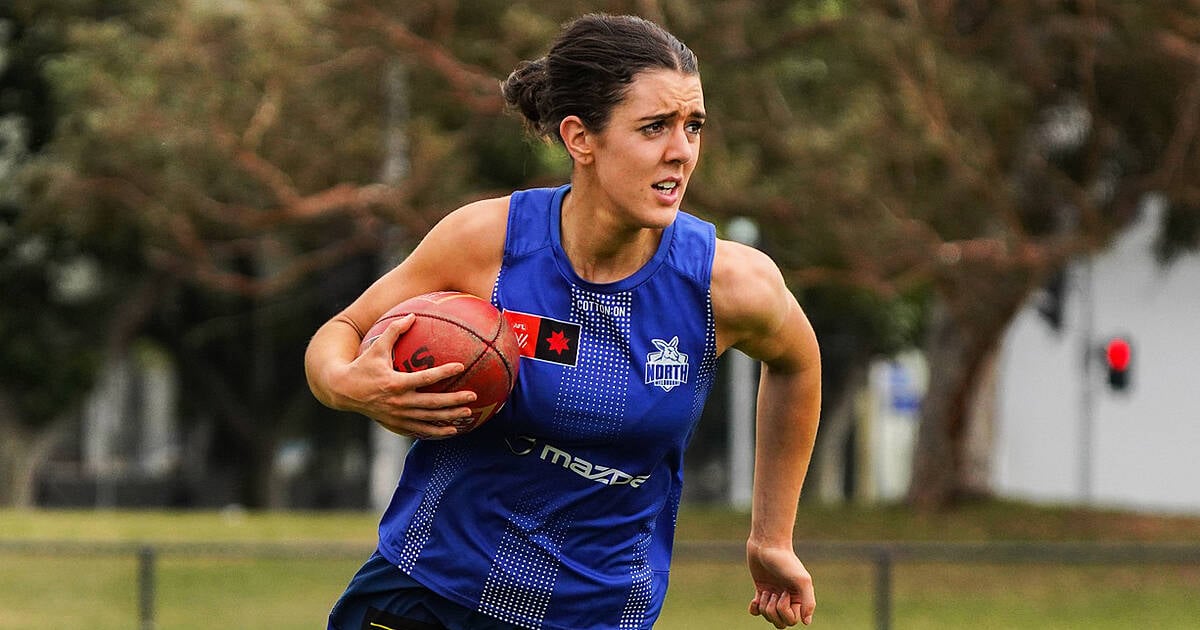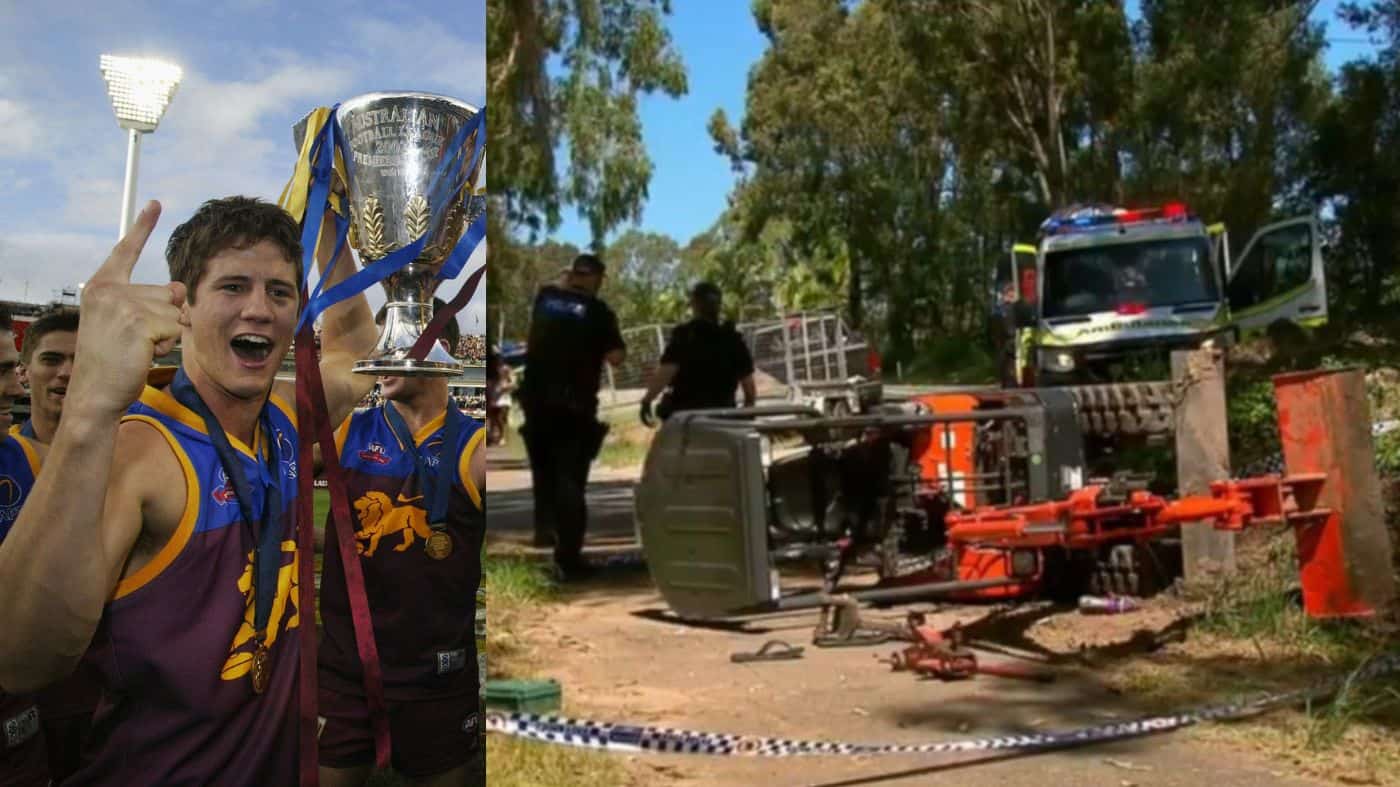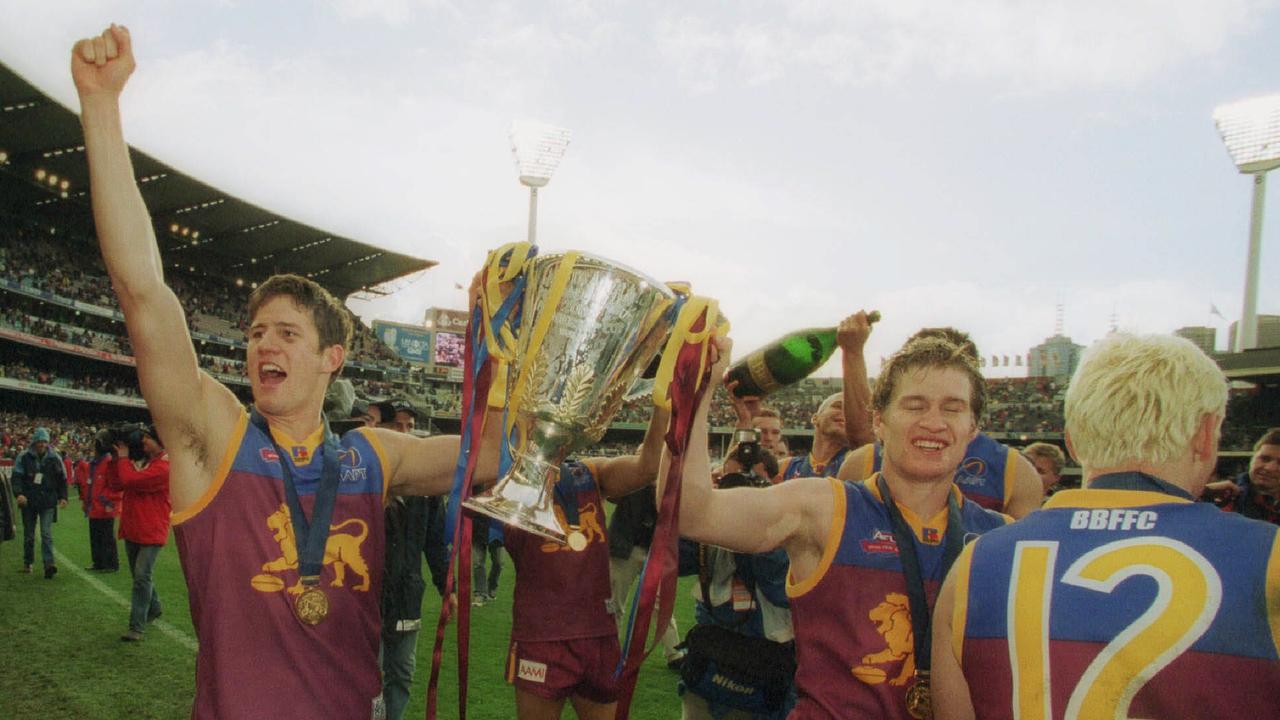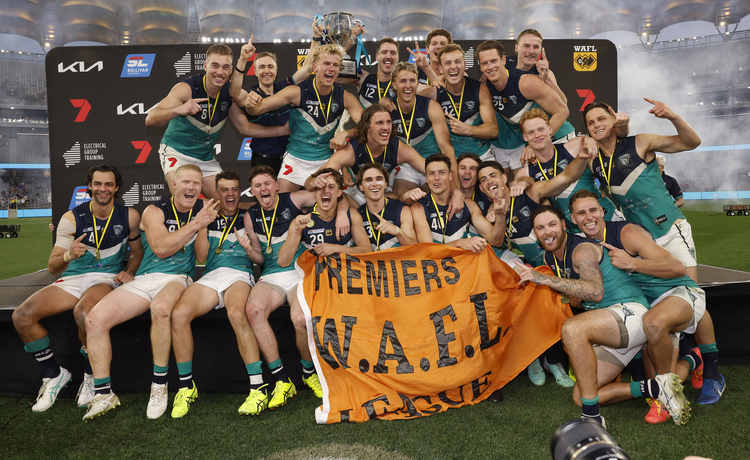Nauru AFL hopes for a grass field

- by Admin
- April 11, 2024
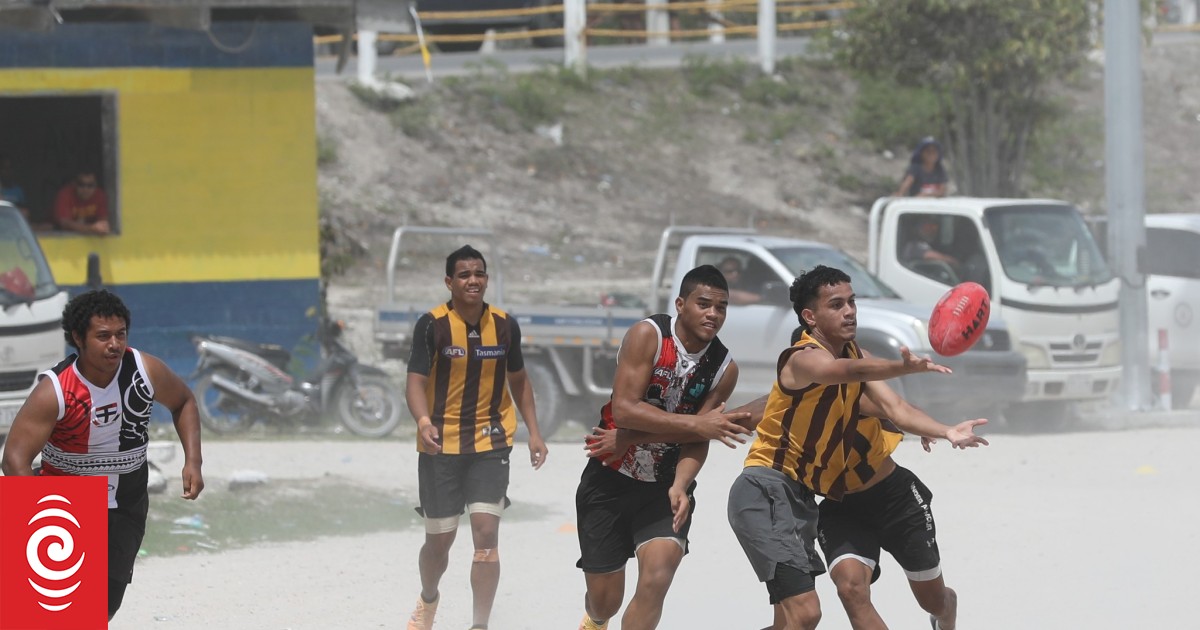
Local AFL games in Nauru – played on the gravel ground.
Photo: AFL Nauru
Wylie Detemano and his team at the Nauru Australian Football League (AFL) believe having a proper grass field will be a big boost for the sport on the island.
Although the game has been played over 100 years on the island there is no grass field for players to use.
Instead players have had to make do with the gravel ground at Linkbelt Oval in Yangor.
AFL, also known as Aussie rules football, was brought back by Nauruans who studied in Melbourne and Australia years ago.
Speaking with RNZ Pacific, Detemano – president of the AFL set-up in Nauru – said things have suddenly looked promising with the Australia Defence Force and the AFL in Australia coming on board to assist them.
Since 2022, Nauru players have been involved with the Pacific and Oceania Cup competitions.
That, along with the AFL academy attachments for their youth players, have lifted the interests back home, where AFL is the national sport.
Detemano said it is the right time for securing a proper ground which can then cater for hosting regional teams and competitions.
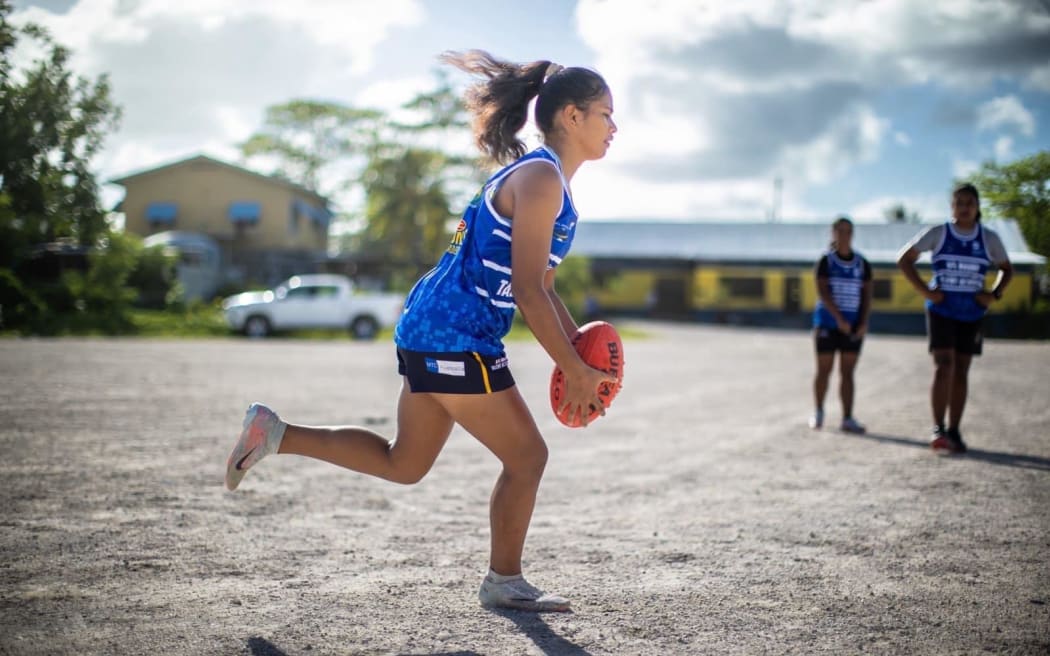
Local AFL games in Nauru – played on the gravel ground.
Photo: AFL Nauru
But it is something they cannot do at the moment because there is nowhere to play, except the gravel field.
“Because [of] our field here, no one would want to play here, because we don’t have grass on the field, it’s just gravel,” Detemano said.
“I know when the Australian Defence came here they were really surprised seeing us playing on that. But that’s just our oval.”
The good thing, he said, that Australian Aid (AusAid) is keen to assist them get a grass field constructed.
“We are planning with AusAid on making a second field where we will probably find a field that have grass because that’s the only way to to get the players to get used to playing on grass,” he said.
“At the moment, the only time we play on grass is when we fly overseas, especially for our players flying to Fiji. It’s a new thing for them because we’ve never played on grass.
“So yeah, that’s why we don’t have competition held here for other countries.”
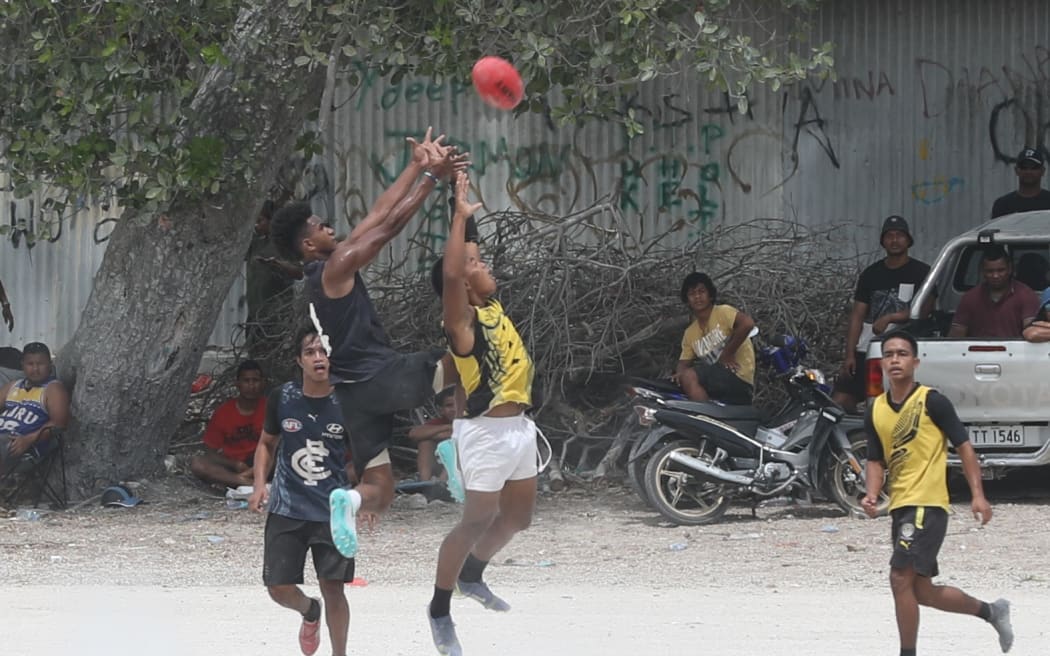
Local AFL games in Nauru – played on the gravel ground.
Photo: AFL Nauru
Securing land
Having the academy relationship with Brisbane has opened the door to the possibility of getting that field.
But Nauru AFL will need to get a landowner or landowners on board first.
“We’re hoping to do that. The issue is land and trying to get landowners on board and try to get the land first,” he said.
“And then from there, we can talk with the Minister for Infrastructure and Minister for Sports. And we’ll try to get a deal with AusAid because they do want to help us build a second field.
“That’s the thing that we are lacking at the moment.”
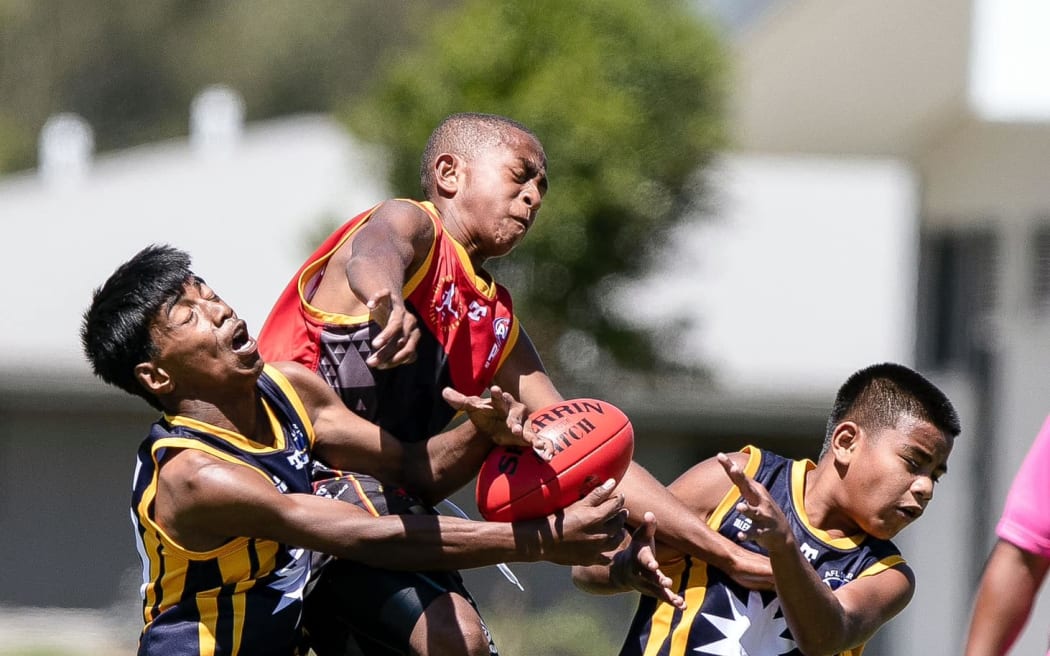
Nauru teams in Brisbane.
Photo: AFL Nauru
However, despite the current limitations, AFL continues to grow in Nauru.
Local competition kicks off next month.
Some of their youth players recently returned from academy attachments in Brisbane as part of the South Pacific team.
The players played against the Gold Coast Academy and the Brisbane Lions Academy.
Two players were selected after that to join the Brisbane Lions Academy.
Players are also preparing for the South Pacific Cup in Ausralia and the Oceania Cup in Fiji.
The two events include teams from Nauru, Tonga, Papua New Guinea, Fiji and Vanuatu.
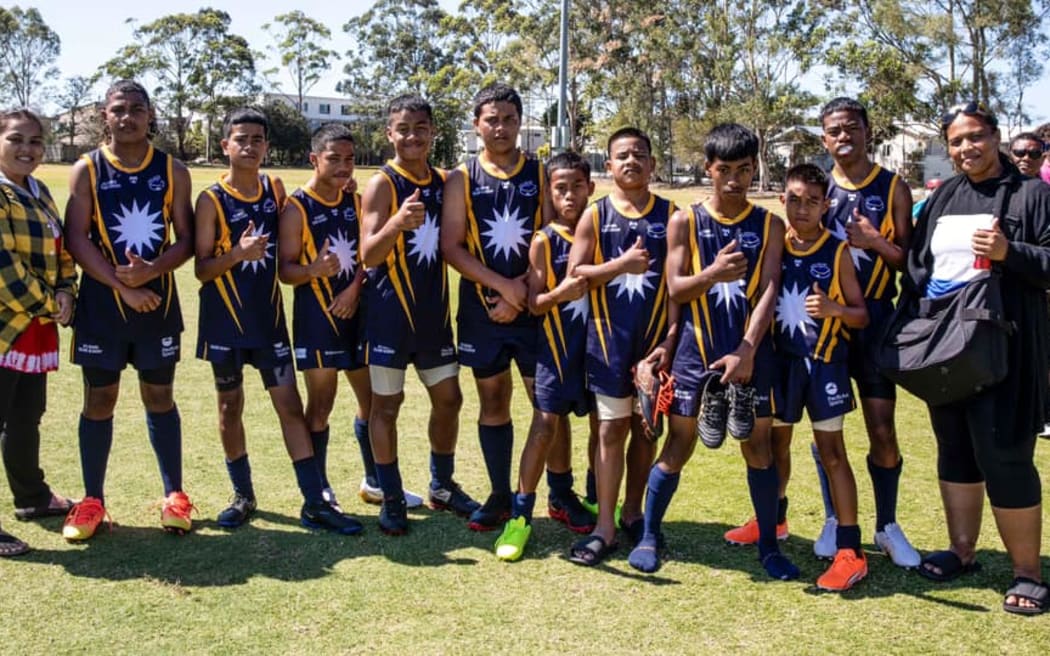
Local AFL games in Nauru – played on the gravel ground.
Photo: AFL Nauru
Meanwhile, the ADF said in March that they will work with Nauru and the AFL in delivering comprehensive sports training program aimed at fostering coaching, umpiring, sports trainer and first-aid skills among the Nauruan community.
The first they held was from 18-25 February
As part of the program, local Australian rules clubs were gifted sports equipment, with participants earning internationally recognised level one and two coaching and sports trainer qualifications.
The Latest News
-
December 23, 2024Australian tennis rocked as doubles champion banned
-
December 23, 2024AFLW champion Erika O’Shea wants more success with North Melbourne and Cork | The Southern Star
-
December 23, 2024Video: Russia captures ‘Australian’ man fighting for Ukraine, Canberra opens probe
-
December 23, 2024Australian tennis star Max Purcell suspended for doping violation
-
December 23, 2024Aussie Purcell accepts provisional tennis doping ban
